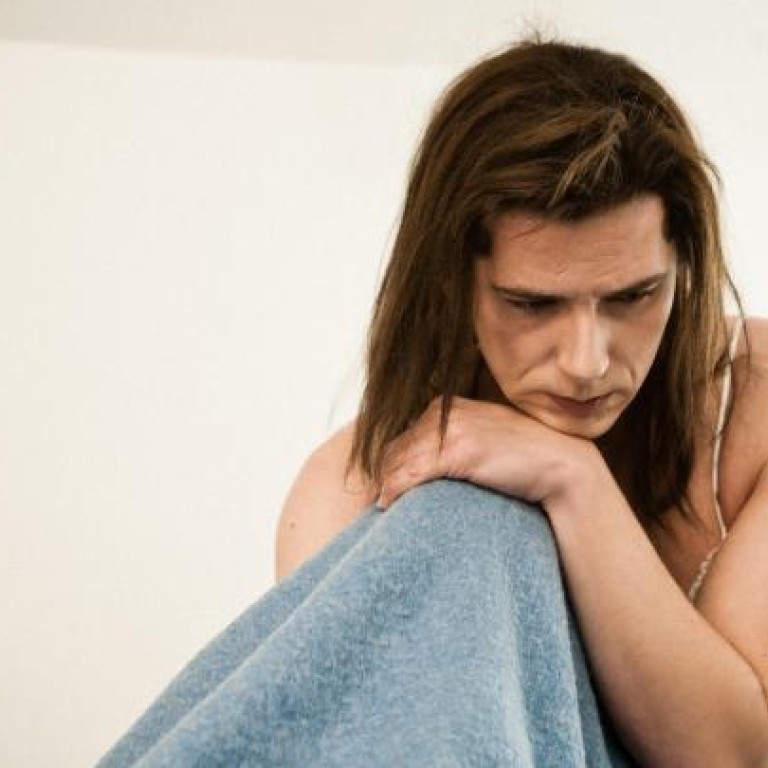
Canadian director falls into the gender trap
Canadian director Xavier Dolan's love story charts the difficult transformation of a male teacher into a woman, writes Charley Lanyon
After well-received screenings at the Hong Kong Lesbian and Gay Film Festival late last year, French Canadian wunderkind filmmaker Xavier Dolan's is set for a commercial release at the end of this month. A romantic drama with a story that spans 10 years and a nearly three-hour running time, the winner of the Queer Palm prize at the 2012 Cannes Film Festival nonetheless is narrow and almost confining in its scope.
follows the transformation of Laurence Emmanuel James Alia, a transgender French Canadian teacher who was born with male physical characteristics, as she comes to terms with her gender identity and begins to live her life as a woman. But it is not a political film, or activism. Instead, Laurence's transformation is secondary to his affair with Fred Belair, his girlfriend who, caught off guard by Laurence's identity crises, struggles to keep their relationship alive.

Poupaud's charisma meets its match in Suzanne Clément, who plays Fred. The winner of the award for best actress in the Un Certain Regard category at Cannes last year, her role is much more than that of a love interest or secondary character. In fact, Fred's transformation is nearly as entire as Laurence's and in many ways even more surprising.
Even though it centres on a hot-button issue - acceptance of sexual minorities - Dolan's film seems almost self-conscious in its avoidance of any kind of social statement. Instead the movie takes on the inevitability of change, and how most change is outside our control.
The central theme of is transformation - not just its main character's transformation from male to female but also her ageing, from young adulthood into middle age, the transformation of those around Laurence as they either open out to her or are unable to. Most of all, Dolan focuses on the transformative power of love along with its often painful limitations.
As Poupaud puts it: "The movie is more about the couple and the love affair. I think anyone can relate to the love affair, whether you're gay or straight, a man or a woman. It's about how it's hard to live your life, to make choices and to keep loving."
Poupaud does not discount the film's ability to change individuals' points of view. It changed his own - just not in any way he expected. "It has changed me deeply in my interaction with women. Playing a 45-year-old woman changed my taste. Before that I was attracted to younger women, maybe believing I was still 20 years old, but now I've changed. I feel more comfortable with and closer to women my age, understanding more of what they're going through."
By not making Laurence's gender identity the centrepiece of , Dolan seems to be saying that this is not such a big deal for the current generation. He makes that point most overtly when Laurence arrives at his school dressed as a woman for the first time. The adults eye him with shock and suspicion but, at least at first, his students hardly notice. That said, Dolan has chosen to set his film in a heavily stylised 1980s. It is a world of big shoulder pads and sequins, of Duran Duran and smoking indoors. From a purely aesthetic standpoint, the filmmaker's choice is an effective one.
For his part, Poupaud feels that in setting the movie three decades ago Dolan is making a disparaging comment about the pace of change and acceptance in society. "I think he wanted to set the movie then because before 2000 we could still believe that things were changing. That change would come. More tolerance, less prejudice, and as my character says 'Let's hope that the world will be better'. And you find out, as the movie [first came out] in 2012, that things haven't really changed," the actor says.
Or it could be argued that in taking his characters out of modern times, the Quebecois filmmaker is able to get to the core emotions, and again emphasise the universality of their struggles. And it's the film's universality and the light its 23-year-old director-scriptwriter shines on an undeniable but discomfiting aspect of the human experience that Poupaud finds most compelling.
"From my point of view, I can understand that even though you love someone and you think it is the love of your life and you're made for each other, there is still a moment where maybe it won't work and you break up knowing you're losing maybe the most important person in your life. But that's how it is."
is not an optimistic film. It is populated by optimistic characters who are forced to confront the limitations of their own lofty expectations. It lays bare that being true to yourself can lead to heartbreak and isolation. Still, suggests Poupaud: "It's not about being happy or unhappy. You have to live your life. It is just a state we experience from time to time but you cannot be happy for ever."
Ultimately, is about acceptance. But it is not the celebratory acceptance so common to other similar modern films. Instead it is a slow, grinding acceptance viewed through the lens of pessimistic realism, less about accepting any one person, as accepting our own lives' constraints and inevitabilities.
Laurence Anyways

